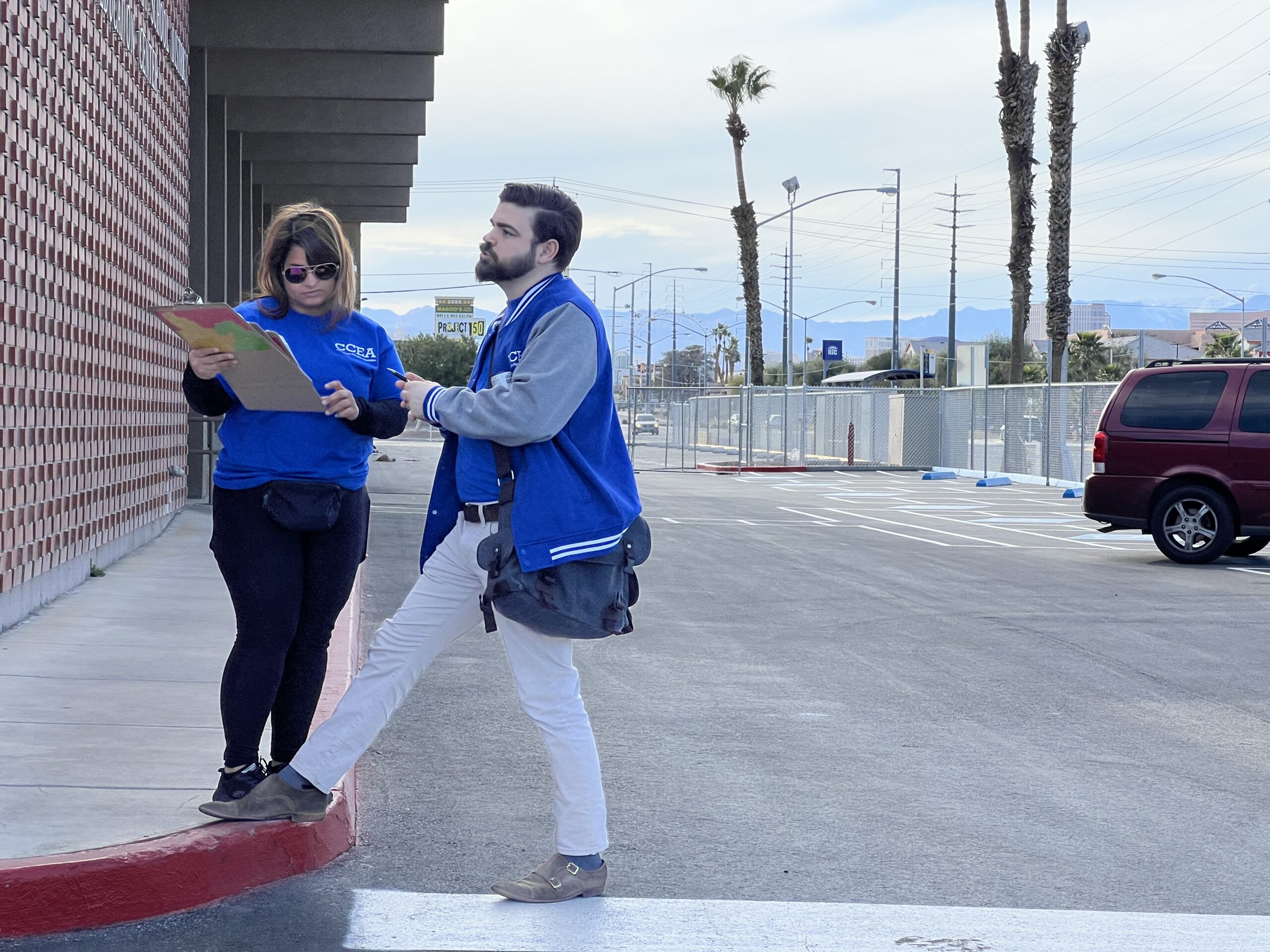Gov. Joe Lombardo is opposing an initiative by the Clark County teachers union that would allow Nevada public school teachers to go on strike.
Under Nevada law, strikes by public employees — including teachers — are illegal.
The governor’s opposition, which he expressed during The Nevada Independent’s IndyTalks event Wednesday came two months after the Clark County Education Association (CCEA) filed a petition to put a measure on the ballot that, if enacted, would exempt public school teachers from the state’s strike prohibition. It came about a month after the union’s contract dispute with the district came to an end following a nine-month battle that entered into the arbitration process when the district, then led by former Superintendent Jesus Jara, declared an impasse in September.
State law defines a strike as any concerted stoppage of work, slowdown or interruption of operations by public employees, including absences based on false pretenses, such as illness.
It’s illegal for teachers to go on strike in 37 states, including Nevada, and Washington, D.C.
During the Wednesday event, Lombardo said he did not think teachers should be able to go on strike. He said he thought the state’s current collective bargaining process works, and called it a successful model.
“I think their decision to want to strike was out of frustration on the previous negotiations and I think the issues with that angst and that frustration should be addressed,” Lombardo said during Wednesday’s event.
CCEA Executive Director John Vellardita pushed back on Lombardo’s comments in a Thursday interview, and called the arbitration process that kicked in after the school district declared an impasse “destructive.” The union has said its contract negotiations with the district have entered lengthy arbitration processes four times in the past 12 years.
“It takes too long to find resolution and it bleeds into the school year, and sure, it’s easy for us to say it affects teachers when it clearly affects students and their learning,” he said.
Last year, as the district and the union butted heads over proposed pay increase for teachers, an unprecedented number of teacher absences or sickouts led to canceled classes at 10 schools — a situation the court declared to be a form of a strike. CCEA denied any involvement in the rolling sickouts that took place in September.
The labor dispute was resolved in December, when the school district and CCEA settled on a new contract that was approved by an arbitrator.
Lombardo’s comments came about two weeks after the union began gathering signatures from voters.
Vellardita said the union hired Advanced Micro Targeting, a company headed by Republican former Senate Majority Leader Michael Roberson, to gather signatures. CCEA worked with the political consulting firm in 2021 when it was pushing forward two initiatives that would have raised gaming and sales taxes.
Vellardita said the petition hasn’t received any challenges so far.
In order to get an initiative or referendum on the ballot that proposes or repeals language for state law, a petitioner must obtain signatures from at least 10 percent of the voters in the previous general election. This means it needs at least 102,362 valid signatures from registered Nevada voters. At least 25,591 signatures would need to come from each of the state’s four congressional districts.
The deadline for submitting these signatures to the county clerk or registrar of voters for verification is Nov. 20.
Vellardita said he’s confident that the union will have the signatures it needs well before that deadline and isn’t deterred by the governor’s opposition.
If the union is able to gather the necessary amount of signatures, the petition goes before the state Legislature for consideration in the 2025 session. If the Legislature approves the initiative, it becomes law. However, if the Legislature rejects the initiative or fails to take action on the initiative within 40 days, the initiative is presented to the voters at the next general election in 2026.
Vellardita said he continues to be open to considering other solutions suggested by Lombardo and state lawmakers.
“There’s an opportunity in the ’25 session to find some solution and if there isn’t a solution in the ’25 session, clearly the law allows the voters to be the final judge on this,” Vellardita said.
During a January press conference, Vellardita said if a compromise on an alternative solution was reached, the union could withdraw the initiative as it did in 2021 when it used the two tax-hiking ballot initiatives as leverage to secure more mining tax revenue for schools.

